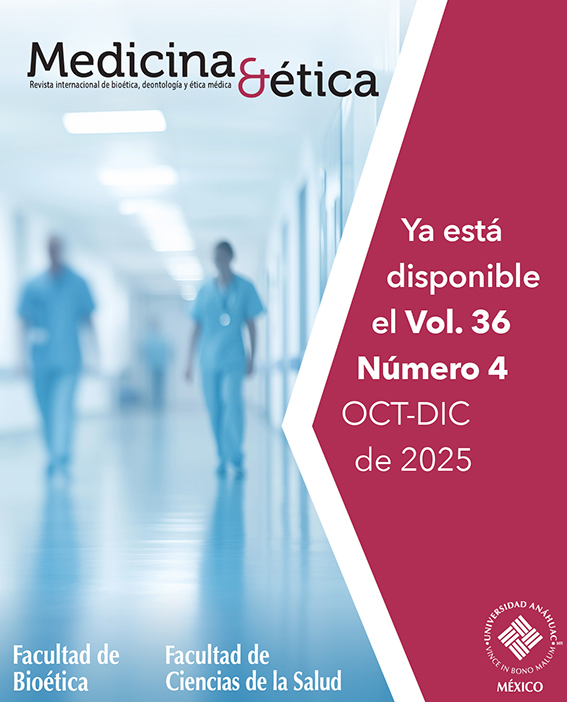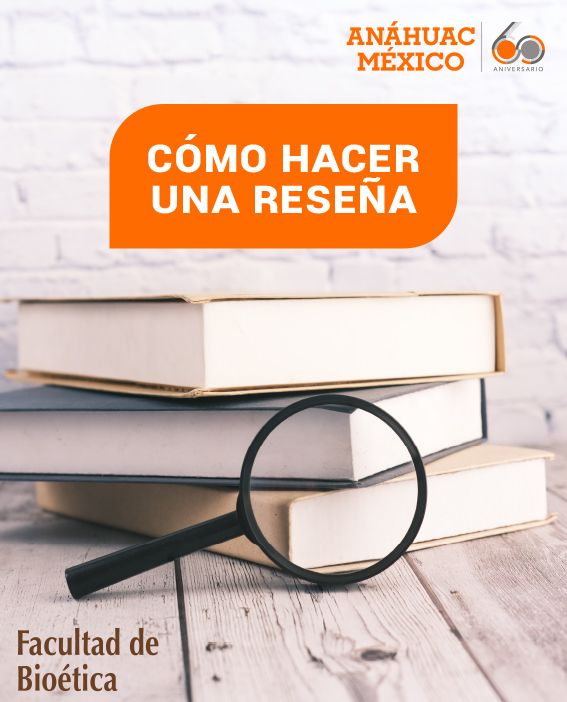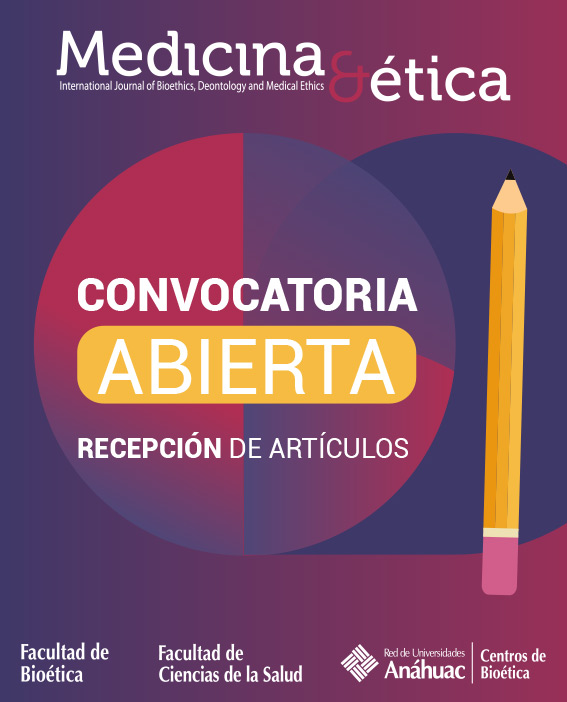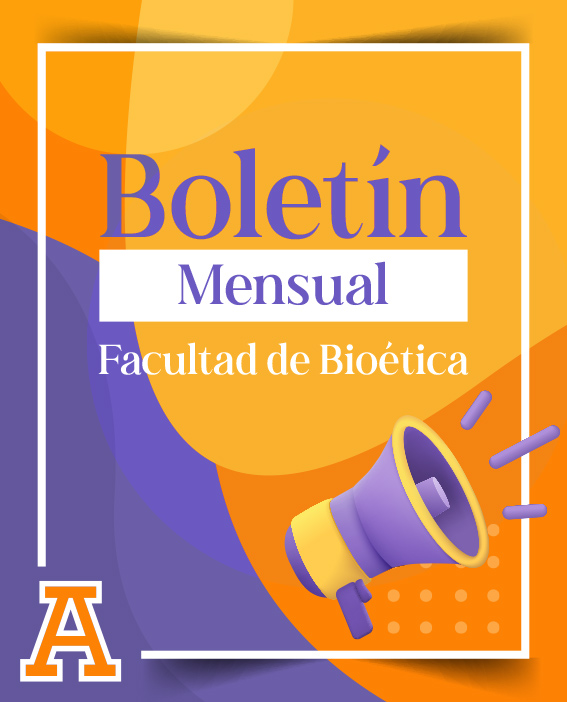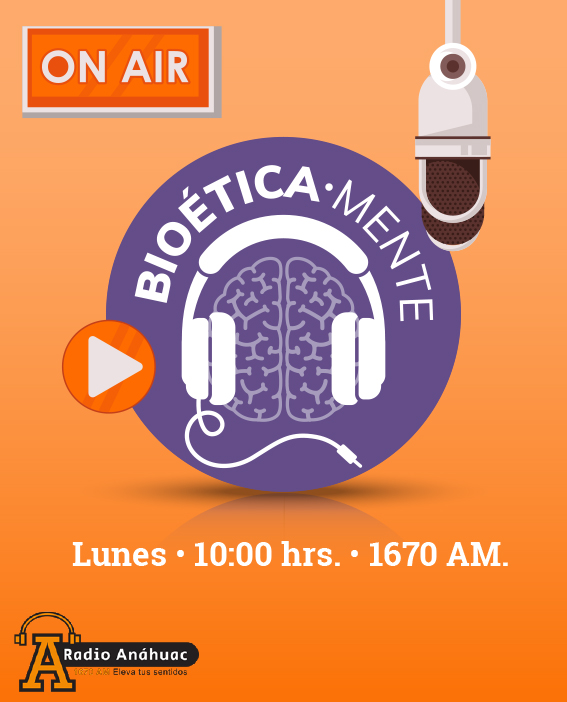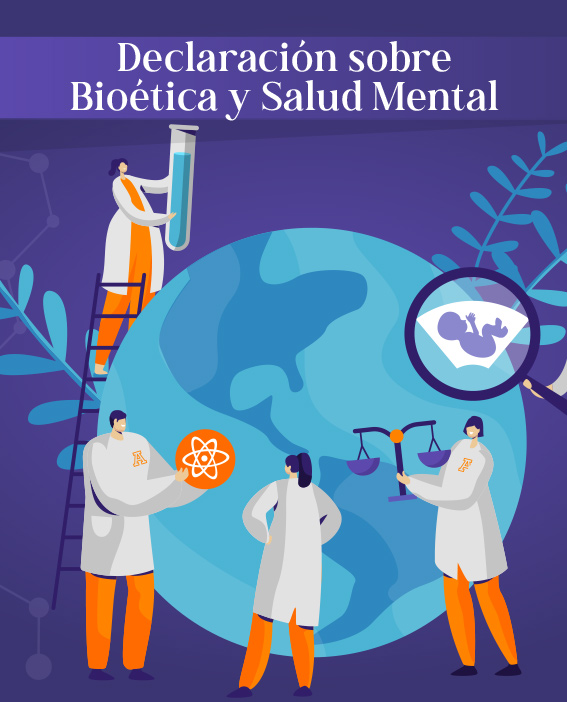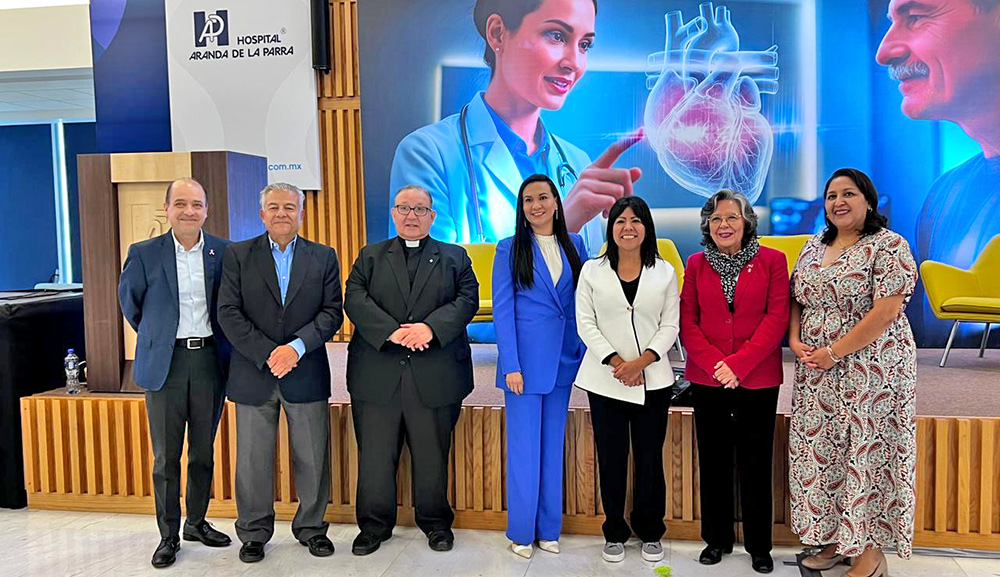
Father Fernando Fabó Martín, academic and researcher at the School of Bioethics, highlighted the importance of medicine guided by compassion, ethical discernment and respect for human dignity at the end of life.
On October 9, 10 and 11, 2025, within the framework of the XVII Congress of Medical Specialties “The challenge of medical innovation: human warmth” organized by the Aranda de la Parra Hospital in León, Guanajuato, doctors, researchers and specialists gathered to analyze how to maintain the human sense of medicine in an era of increasing technification.
In this space, Fr. Fernando Fabó Martín, L.C., academic and researcher of the School of Bioethics of the Anáhuac University Mexico, participated with the presentation entitled “The meaning of stopping: dignity, compassion and limits of treatment”, whose intervention took place within the palliative care module at the invitation of Dr. Óscar Iván Salinas Ruiz, head of teaching and research of the hospital, and which had the presence of Dr. Carlos Guzmán Murillo, medical director.
During his presentation, he emphasized that medical ethics should be guided by the principle of proportionate use of therapeutic means, that is, discerning between what is technically possible and what is morally owed to the patient. He also explained that, in contexts of incurable, terminal, or dying illness, bioethics offers a moral compass that allows us to distinguish between curing at all costs and caring with compassion.
Quoting the document “Iura et bona” from the Congregation for the Doctrine of the Faith, he recalled the principle: “do what is possible, everything possible and only what is possible,” noting that the moral obligation consists of applying only those means that are proportionate, considering the suffering, the risks, the costs and the conditions of the sick person.
Furthermore, he pointed out that accepting the limitations of treatment does not mean abandoning the patient, but rather recognizing their dignity in their vulnerability. “Dying peacefully, with support and without disproportionate measures is a right that stems from the very dignity of life,” he affirmed, warning about the risks of medical technicalities that can turn biological prolongation into an end in itself.
He also emphasized that palliative medicine is an essential expression of Christian humanism, whose objective is to improve the quality of life of the patient and their family through symptom control, honest communication, and comprehensive care. He explained that its proper practice reduces requests for euthanasia and offers compassionate support beyond the end of life.
Father Fabó Martín concluded his presentation by reminding everyone that bioethical training is essential for healthcare professionals, as it allows them to discern with wisdom and empathy in the face of increasingly complex clinical dilemmas. He maintained that bioethics does not halt medical progress, but rather guides its human and moral direction, leading doctors to "cure when possible and care always."
More information:
MPSS Estefanía Alvarez
Facultad de Bioética
bioética@anahuac.mx

